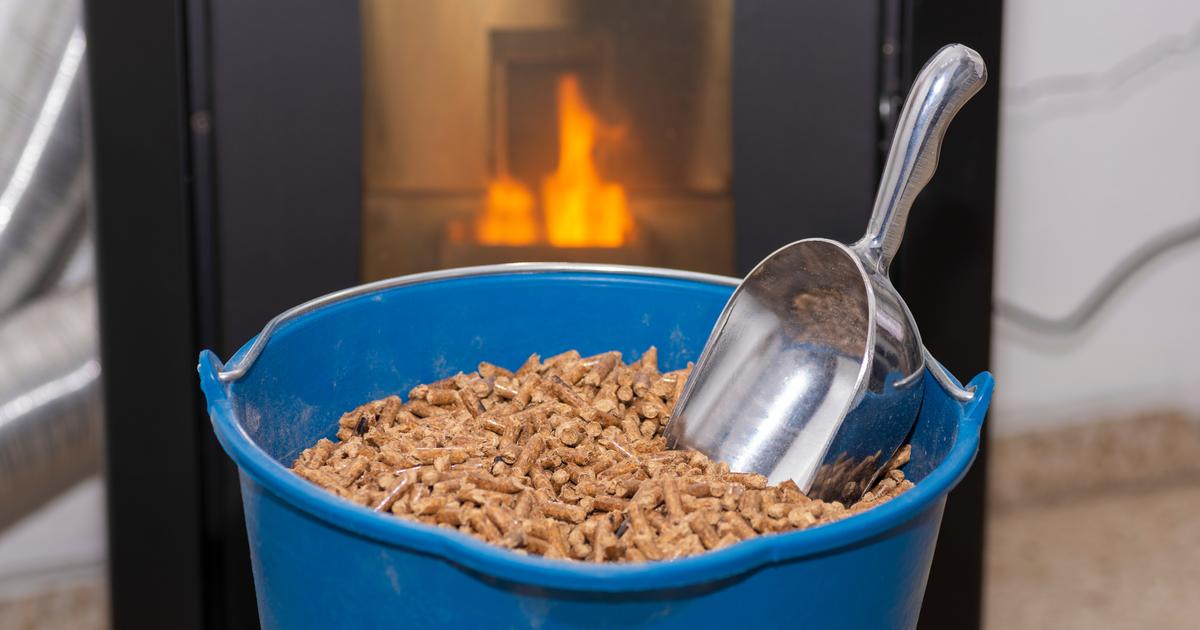If you own a stove, you should now take a look at the age of the system. Certain devices must be retrofitted or even decommissioned according to the law. (Symbolic image) © Viktoryia Verstak/Imago
Emissions of particulate matter in Germany are to be reduced by 2025. Numerous wood-burning stoves must therefore be retrofitted or decommissioned.
Berlin – The German government has reached an agreement in the dispute over the Building Energy Act (GEG) with the ban on the installation of new gas and oil heating systems. In essence, however, it remains the case that from 2024 every newly installed heating system must be powered by 65 percent renewable energies, explains the Federal Ministry of Economics. The aim is to move away from oil and gas heating systems and reduce dependence on fossil fuels. If you are now considering reactivating the decommissioned stove, you should be careful, because there are also certain guidelines in Germany for heating with wood.
This is because, according to a law, certain pollutant values may not be exceeded and wood-burning stoves in Germany must comply with certain limit values. Fireplaces that cause high pollutant emissions may even have to be shut down soon according to a regulation.
Guidelines for wood-burning stoves: Emissions of particulate matter are to be reduced
In 2024, the last stage of the Federal Immission Control Ordinance will come into force. By 2025, the government wants to reduce particulate matter emissions to 16,000 tonnes. Old wood-burning stoves must therefore be replaced or retrofitted under certain circumstances. According to reports from the technology magazine Chip, however, only systems with lockable doors are affected. Open fireplaces, stoves and closed fireplaces, which can also be in operation when open, are not affected by the regulation.
| Limit value for particulate matter | 0.15 grams per cubic meter |
| Carbon monoxide limit value | four grams per cubic meter |
| Source: Federal Ministry for the Environment, Nature Conservation, Nuclear Safety and Consumer Protection |
If a wood-burning stove exceeds the specified values, the stoves must be shut down or retrofitted. This can be determined by a measurement by a chimney sweep.
Retrofitting or shutting down wood-burning stoves: This is how consumers can see whether their system is affected
According to the Federal Environment Agency, 11.7 million households in Germany have stoves that produce particulate matter. The values of the old stoves are sometimes higher than those of trucks and cars. There is a need for action. In recent years, all turbines built between 1975 and 1984 have been gradually converted or taken out of operation. Stoves installed by the deadline of December 31, 1994 had to be retrofitted or replaced by the end of December 2020. On 31 December 2017, the deadline expired for wood-burning and tiled stoves installed before 21 March 2010.
0
Also Read
Radical reform of health insurance is imminent: Who could soon face higher payments
READ
Keep ticks away - home remedies work wonders for humans and animals
READ
Rewe sign achieves nationwide fame – "I don't want to hear history about it"
READ
Major passport innovation planned – it will be significantly more expensive for holidaymakers
READ
Angry Netflix customers speak of consequences: "We quit and so did many others"
READ
Fancy a voyage of discovery?
My Area
| Date on the nameplate | Timing of retrofitting or decommissioning |
| up to and including 31 December 1974 or date no longer ascertainable | 31 December 2014 |
| 1 January 1975 to 31 December 1984 | 31 December 2017 |
| 1 January 1985 to 31 December 1994 | 31 December 2020 |
| 1 January 1995 up to and including 21 March 2010 | 31 December 2024 |
| Source: Federal Ministry for the Environment, Nature Conservation, Nuclear Safety and Consumer Protection |
According to the Industrial Association for House, Heating and Kitchen Technology (HKI), particulate matter emissions from domestic fireplaces have fallen by around a third since the beginning of the retrofitting and replacement obligation in 2010.
Consumers can tell from the type plate of the furnace whether their system is affected, because the age must be indicated there. Alternatively, measurement data from the chimney sweep or a certificate from the manufacturer can also provide information about the pollutant values of the stove.
If the limit values are exceeded, a particulate filter, for example, can be retrofitted to prevent particulate matter. In the case of old stoves that emit too much carbon monoxide, however, an upgrade makes little sense, according to experts. Retrofitting and then measuring the furnaces is often more expensive than buying and installing a new, more efficient system. (hg)











